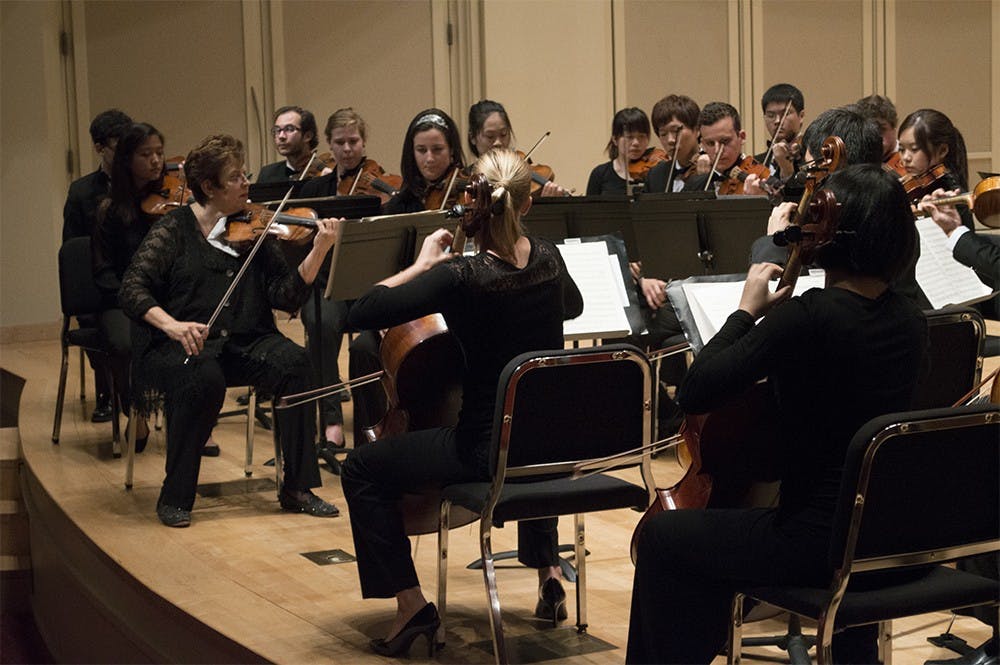Instead, the musicians relied on each other, the sheet music on their stands and the orchestra leader Jorja Fleezanis, who performed violin with the ensemble.
The Jacobs School of Music’s Chamber Orchestra performed its first concert of the semester Wednesday evening.
The Chamber Orchestra is a group of about 30 musicians involving strings, brass, woodwinds and percussion.
Fleezanis, a professor in the Jacobs School of Music, trains the musicians in skills such as listening.
The orchestra is a mixture of undergraduate and graduate students. Each student earns their place in the orchestra by auditioning from behind a screen, so they are placed based on ability rather than status.
The students range from freshmen to master’s students.
“The beauty of that is to watch how older students mentor younger students and how some younger students, who obviously earned their position in that orchestra, are contributing in that their abilities are on par with some of the master students,” Fleezanis said.
The orchestra teaches students skills such as responsibility, collaboration and self-sufficiency, Fleezanis said.
She said it is like an “orchestral training boot camp” that gives them the skills of a professional orchestra.
Performing without a conductor adds a level of excitement and risk, and it is like a free-fall where the only people in charge are the performers themselves, Fleezanis said.
Senior Leo Kowalski, who plays violin in the orchestra, said Chamber Orchestra provides a different experience than playing in a large orchestra.
“I like that it’s a smaller orchestra, because it puts more accountability on each individual member,” Kowalski said.
First-year master’s student Jacqueline Kitzmiller plays the violin in the orchestra. She said she likes the feeling of performing during a concert because being onstage in front of an audience is exhilarating.
The orchestra requires learning on musical levels and human levels at the same time, Fleezanis said.
“It’s like being in a lifeboat together,” Fleezanis said. “Everyone depends on everybody, and if one person gets off base and tips the boat, it’s important that we all compensate and bring ourselves back to a right position.”
The orchestra performed Ludwig van Beethoven’s “Overture to ‘Egmont, Op. 84,’” Justin Merritt’s “Lachryme (version for string orchestra, 2002)” and Franz Schubert’s “Symphony No. 5 in B-Flat Major, D.485.”
The combination of the three pieces conveys a bittersweet emotion, Fleezanis said, because the Beethoven piece is both tragic and victorious, Merritt’s piece is sad and Schubert’s piece is sunny and optimistic.
Performing at a high skill level requires high standards, Fleezanis said.
“I’ve been very demanding, as I should, because I think without being demanding it’s very hard to say, ‘I can do it,’ and I insist that they do it,” she said.
The orchestra had only about two weeks to rehearse the music.
Fleezanis said performing in an orchestra concert requires a level of bravery. When they are on stage, the group works together to create an experience that is special to themselves and to the audience, she said.
“They’ve been given a lot of tools, but what happens at that point is a set of decisions that everyone makes right then and there,” Fleezanis said.






